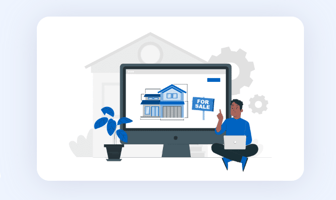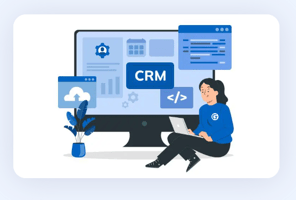Introduction In the fast-paced world of commercial real estate, staying ahead of the competition...
Real Estate Management Software Development: Revolutionizing the Industry
Real estate management software has emerged as a game-changer in the ever-evolving real estate industry. The digital age has brought about a transformation in how real estate professionals manage their properties, clients, and operations. This article delves into the world of real estate management software, exploring its significance, features, and how it impacts the industry.
Introduction to Real Estate Management Software
real estate management software development is a comprehensive digital solution designed to simplify and streamline the processes involved in property management. It provides real estate professionals with a centralized platform to efficiently manage properties, clients, and transactions. This technology-driven tool has become essential for individuals and companies involved in real estate management.
The Importance of Real Estate Management Software
In the highly competitive real estate industry, efficiency is key. Real estate management software plays a crucial role in improving efficiency by automating various tasks, including property listings, client communication, and financial transactions. It enhances productivity and allows professionals to focus on what truly matters - building relationships and closing deals.
Key Features of Real Estate Management Software
Real estate software typically comes with a range of features, including property database management, lead generation, contract management, and financial tracking. It often includes a user-friendly interface and customizable dashboards, making it easy for real estate professionals to access the information they need quickly.
Benefits for Real Estate Professionals
The benefits of real estate management software are manifold. It reduces administrative workload, minimizes the risk of errors, and increases collaboration among team members. Additionally, it provides valuable insights through data analytics, helping professionals make informed decisions.
Types of Real Estate Management Software
There are various types of real estate management software available, catering to the specific needs of real estate agents, property managers, and investors. Some software focuses on residential properties, while others are tailored for commercial real estate.
How Real Estate Software Streamlines Operations
Real estate software streamlines operations by automating repetitive tasks such as document generation, email marketing, and property valuation. It also enhances client relationship management by providing a centralized database of client information and communication history.
Choosing the Right Real Estate Management Software
Selecting the right software is crucial for its successful implementation. Professionals must consider factors such as scalability, user-friendliness, and the ability to customize the software to meet their unique needs.
Implementation and Training
The successful implementation of real estate management software requires proper training and onboarding. Ensuring that all team members are proficient in using the software is vital to maximizing its benefits.
Data Security in Real Estate Software
Data security is a top concern in the real estate industry. Professionals must choose software that offers robust security features to protect sensitive client information and financial data.
Integration with Other Tools
Many real estate professionals use a variety of tools and platforms in their daily operations. Real estate management software should be capable of integrating with these tools for seamless data exchange.
Cost of Real Estate Management Software
The cost of real estate management software varies, and professionals must consider their budget and requirements when choosing the right solution. While it is an investment, the long-term benefits often far outweigh the initial costs.
Real Estate Management Software Market Trends
The real estate software industry is continually evolving. Keeping up with the latest trends and innovations can provide professionals with a competitive edge in the market.
Case Studies: Successful Real Estate Software Implementation
Real-world examples of successful real estate software implementation can inspire professionals and provide insights into how the software can revolutionize their operations.
Challenges in Real Estate Software Development
The development of real estate software is not without its challenges. Developers face issues related to data security, scalability, and the need for constant updates to keep up with industry changes.
Conclusion
Real estate management software has transformed the real estate industry by improving efficiency, enhancing client relationships, and providing valuable insights through data analytics. Embracing this technology is essential for staying competitive in the fast-paced world of real estate.
FAQs
1. Is real estate management software suitable for both small and large real estate businesses?
Yes, real estate management software is scalable and can be tailored to the needs of both small agencies and large enterprises.
2. How can I ensure the security of sensitive data when using real estate management software?
Choose software with robust data security features and follow best practices for data protection.
3. Are there cloud-based real estate management software solutions available?
Yes, many real estate management software solutions offer cloud-based options, providing flexibility and accessibility.
4. Can real estate management software help in lead generation?
Absolutely, many software solutions include lead generation features to help you find potential clients.
5. What are the typical training requirements for adopting real estate management software?
Training requirements vary but often involve onboarding sessions and ongoing support to ensure proficiency among team members.


